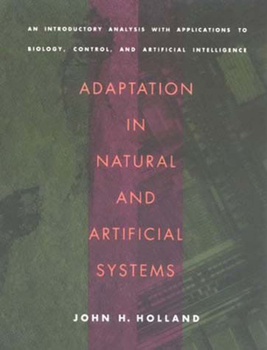Adaptation in Natural and Artificial Systems: An Introductory Analysis with Applications to Biology, Control, and Artificial Intelligence
(Part of the Complex Adaptive Systems Series)
Select Format
Select Condition 
Book Overview
In its most familiar form, adaptation is a biological process, whereby organisms evolve by rearranging genetic material to survive in environments confronting them. In this now classic work, Holland presents a mathematical model that allows for the nonlinearity of such complex interactions. He demonstrates the model's universality by applying it to economics, physiological psychology, game theory, and artificial intelligence and then outlines the way in which this approach modifies the traditional views of mathematical genetics.
Initially applying his concepts to simply defined artificial systems with limited numbers of parameters, Holland goes on to explore their use in the study of a wide range of complex, naturally occuring processes, concentrating on systems having multiple factors that interact in nonlinear ways. Along the way he accounts for major effects of coadaptation and coevolution: the emergence of building blocks, or schemata, that are recombined and passed on to succeeding generations to provide, innovations and improvements.
Related Subjects
Artificial Intelligence Artificial Life Behavioral Sciences Biological Sciences Biology & Life Sciences Cognitive Psychology Computer Science Computers Computers & Technology Control Systems Ecology Evolution Health, Fitness & Dieting Health, Fitness & Dieting Human Vision & Language Systems Microprocessors & System Design Psychology Psychology & Counseling Science Science & Math Science & Scientists Science & Technology





